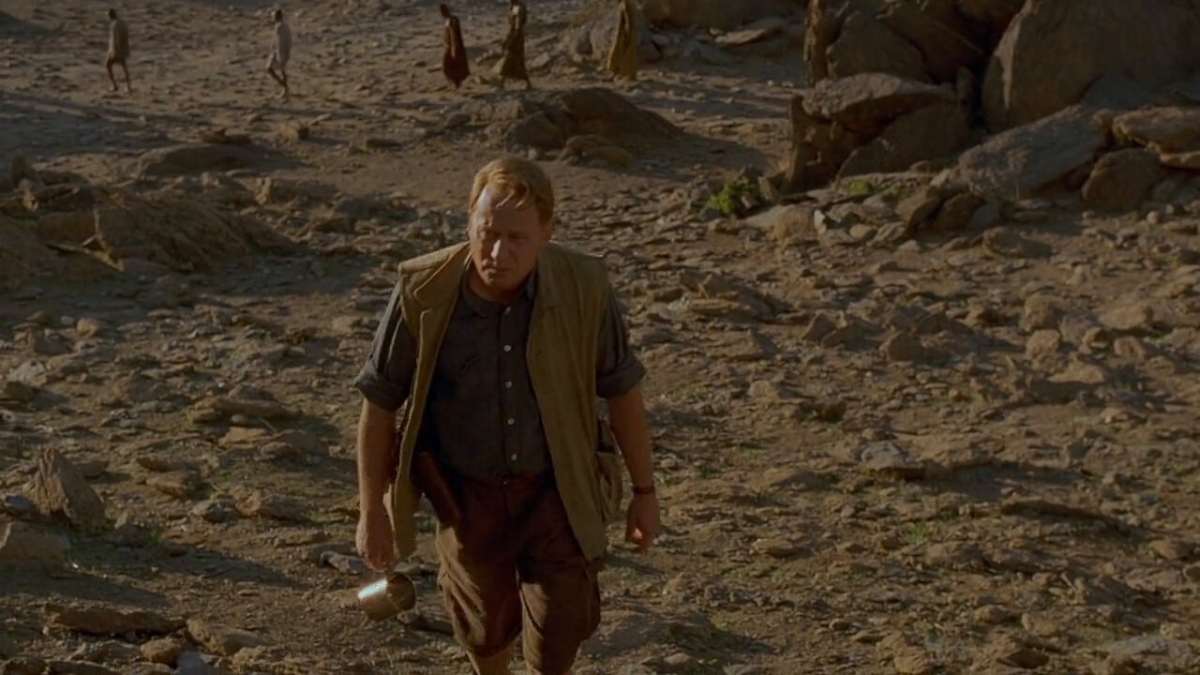‘God was with him’: Actor James Woods describes harrowing wildfire – “God was with him”: Actor James Woods describes harrowing wildfire. This gripping account details Woods’s terrifying ordeal during a devastating wildfire, focusing on his deeply personal experience and his belief in divine intervention. We’ll explore the emotional impact of the event on Woods, examine the role of faith in overcoming crisis, and look at the broader community impact and media response to his story.
Prepare to be moved by a tale of survival, faith, and resilience.
Woods’s narrative offers a powerful testament to the human spirit’s ability to endure unimaginable hardship. By examining his account, we can gain a deeper understanding of the psychological effects of trauma, the comfort found in faith, and the importance of community support in the face of natural disaster. We will also analyze how the media portrayed his experience and the varied public reactions to his account, exploring the complex interplay between faith, disaster, and public perception.
James Woods’ Wildfire Ordeal: A Personal Account: ‘God Was With Him’: Actor James Woods Describes Harrowing Wildfire
Actor James Woods shared a harrowing account of his experience during a wildfire, attributing his survival to divine intervention. His narrative, centered around the phrase “God was with him,” offers a compelling case study on the role of faith in the face of overwhelming adversity and the subsequent public and media reactions.
James Woods’ Personal Account of the Wildfire, ‘God was with him’: Actor James Woods describes harrowing wildfire

Woods described the wildfire as a terrifying and chaotic experience, filled with moments of intense fear and helplessness. The phrase “God was with him” encapsulates his belief that a higher power protected him amidst the raging inferno. Specific details about his near-misses, such as escaping a rapidly approaching wall of flames or narrowly avoiding falling debris, fueled his conviction that his survival wasn’t solely due to chance.
Woods, known for his outspoken conservative views, framed his experience through a deeply religious lens, interpreting the events as a testament to his faith and God’s unwavering protection. His narrative vividly portrays his vulnerability, describing feelings of being completely at the mercy of the uncontrollable fire and the profound sense of relief upon escaping unharmed. He emphasized his complete dependence on a higher power during the crisis.
The Role of Faith in Crisis

Woods’s experience echoes similar accounts from individuals who’ve faced natural disasters, highlighting the significant role faith plays in coping with trauma. Many find solace and strength in their religious beliefs, attributing their survival to divine intervention. The psychological impact of believing in divine intervention can be profound, offering comfort, hope, and a sense of purpose amidst chaos. Faith can provide a framework for understanding and accepting the inexplicable, offering a sense of control in situations where individuals feel utterly powerless.
Actor James Woods’ harrowing wildfire escape story, where he credited divine intervention, is a powerful reminder of life’s fragility. Need a break from intense news? Check out How to watch the UConn men’s basketball team as they take on their next opponent for some feel-good hoops action. Then, maybe reflect again on Woods’ experience – it really puts things in perspective, doesn’t it?
This is often accompanied by a strengthened sense of community and spiritual resilience.
| Faith | Self-Reliance | Community Support |
|---|---|---|
| Finding comfort and strength in prayer and religious beliefs; attributing survival to divine intervention; seeking spiritual guidance. | Focusing on personal skills and resources; taking proactive steps to ensure safety; maintaining a sense of control. | Relying on family, friends, and neighbors for assistance; seeking emotional and practical support; working collaboratively. |
| Increased sense of purpose and meaning; strengthened spiritual connection; enhanced resilience. | Sense of accomplishment; increased self-confidence; feeling empowered. | Reduced feelings of isolation; increased social connection; improved emotional well-being. |
| Potential for blaming oneself if things go wrong; possible reliance on faith to the exclusion of practical actions. | Risk of burnout or exhaustion; potential for overlooking the need for help; possible feelings of guilt if unable to overcome challenges alone. | Potential for conflicting opinions or support styles; risk of relying too heavily on others; potential for emotional burden on support providers. |
| Example: Praying for safety and finding solace in scripture. | Example: Developing an evacuation plan and securing essential supplies. | Example: Participating in community cleanup efforts and supporting neighbors. |
The Wildfire’s Impact on the Community

The wildfire’s impact extended far beyond Woods’s personal experience, causing widespread devastation and affecting countless lives. Homes were reduced to ashes, leaving families displaced and heartbroken. The landscape was scarred by the fire, leaving behind a trail of blackened trees and smoldering debris. The air was thick with smoke, making breathing difficult. The scene was one of utter destruction, yet amidst the devastation, stories of resilience and community support emerged.
Resources and support systems, including emergency shelters, food banks, and mental health services, were mobilized to assist those affected. Organizations such as the Red Cross and local charities played a crucial role in providing aid and relief. Government agencies also stepped in to offer financial assistance and facilitate the rebuilding process.
Visual Representation: A panoramic view showcasing a landscape ravaged by wildfire, with charred trees and destroyed homes. In the foreground, a group of community members are working together to clear debris, their faces etched with determination, yet their eyes reflecting hope and solidarity. The image should highlight the contrast between the devastation and the unwavering spirit of the community.
Media Representation and Public Reaction

The media widely reported Woods’s account, with the phrase “God was with him” prominently featured. This sparked a range of reactions, with some praising Woods’s faith and resilience, while others questioned the attribution of his survival to divine intervention. Religious individuals often interpreted his statement as a testament to the power of faith and God’s protection, while non-religious individuals may have focused on the randomness of survival or the role of chance and preparedness.
The narrative’s impact on public perceptions of faith and disaster relief remains complex, highlighting the diverse perspectives on faith and the challenges of navigating the intersection of religious beliefs and natural events.
Actor James Woods’ wildfire escape story, where he credits divine intervention (“God was with him”), highlights the unpredictable nature of life’s challenges. It makes you think about calculated risks, like the one Adanola’s founder is taking; check out this article on their potential stake sale to fund growth: Adanola founder considers stake sale to fund growth. Woods’ experience shows that sometimes, even with careful planning, you need a little luck (or divine intervention!), while others take calculated gambles for future success.
Ultimately, both scenarios involve navigating uncertainty.
Ultimate Conclusion
James Woods’ harrowing wildfire experience, and his attribution of survival to divine intervention, sparks a powerful conversation about faith, resilience, and the human response to crisis. His story highlights the diverse coping mechanisms individuals employ during traumatic events, reminding us of the strength found in faith, community, and self-reliance. Ultimately, Woods’s account serves as a poignant reminder of the devastating power of nature and the enduring strength of the human spirit in the face of adversity.
General Inquiries
What specific type of wildfire was James Woods involved in?
Actor James Woods’ wildfire escape story, where he said “God was with him,” highlights the unpredictable nature of life’s challenges. It’s a stark contrast to the controlled environment of a basketball game, like the one where, as you can see from this ESPN article, Khris Middleton scores 8 while coming off bench in Bucks win – ESPN , the outcome feels more predictable.
Woods’ experience reminds us that even amidst controlled situations, unexpected events can still dramatically impact our lives.
The specific type of wildfire isn’t detailed in the provided Artikel; further research would be needed.
Did James Woods suffer any physical injuries?
The Artikel doesn’t specify if Woods sustained physical injuries. More information is required.
What was the name of the community affected by the wildfire?
The Artikel does not provide the name of the community. Additional information is needed.
